SmartMat: Retrofit Design for Smart Fridge Functionality

Product Innovation Through Retrofit Design
SmartMat transforms traditional refrigerators into smart appliances without requiring expensive upgrades, targeting young professionals and college students who want smart functionality at a fraction of the cost.
My Role: Product Designer | Solo Project | 6 weeks
Challenge: Smart refrigerators cost $3,500-$8,000, making them inaccessible to younger demographics who still want food management and waste reduction features.
Market Opportunity & User Research
Competitive Landscape Analysis

Samsung, Haier, and LG dominate the smart refrigerator market by essentially embedding tablets into traditional fridges. However, user research revealed that all participants would not discard working appliances for such expensive alternatives.
Market Gap: No affordable solution exists for retrofitting existing refrigerators with smart functionality.
User Research Insights
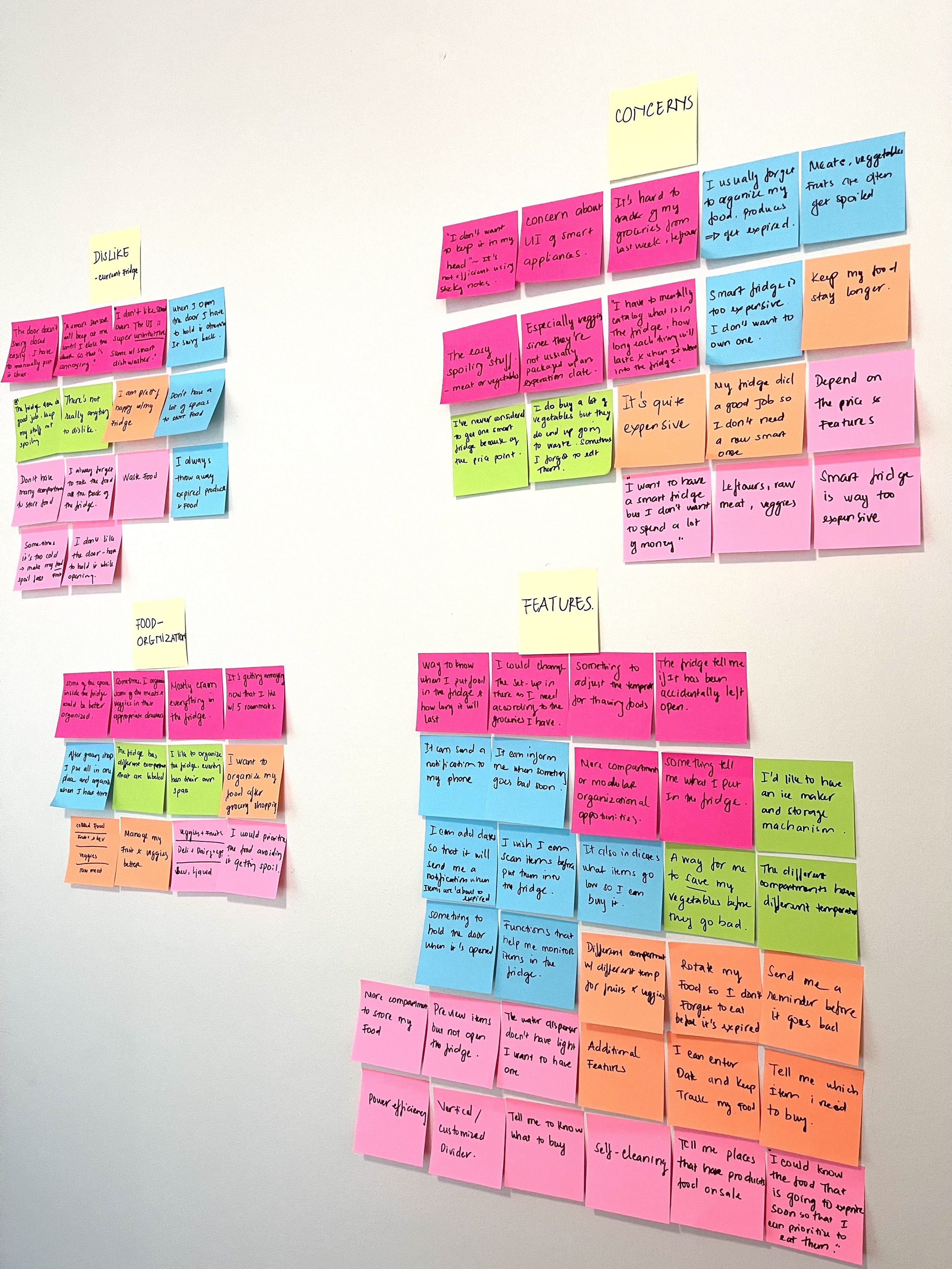
Through interviews with five participants, four key themes emerged around food management needs. Users wanted suggestions for what to purchase and use first, automated shopping list creation based on inventory, better food organization systems, and notifications about store promotions.
Key Finding: Users value smart features but prioritize affordability and integration with existing appliances over complete replacement.
User Personas & Journey Mapping
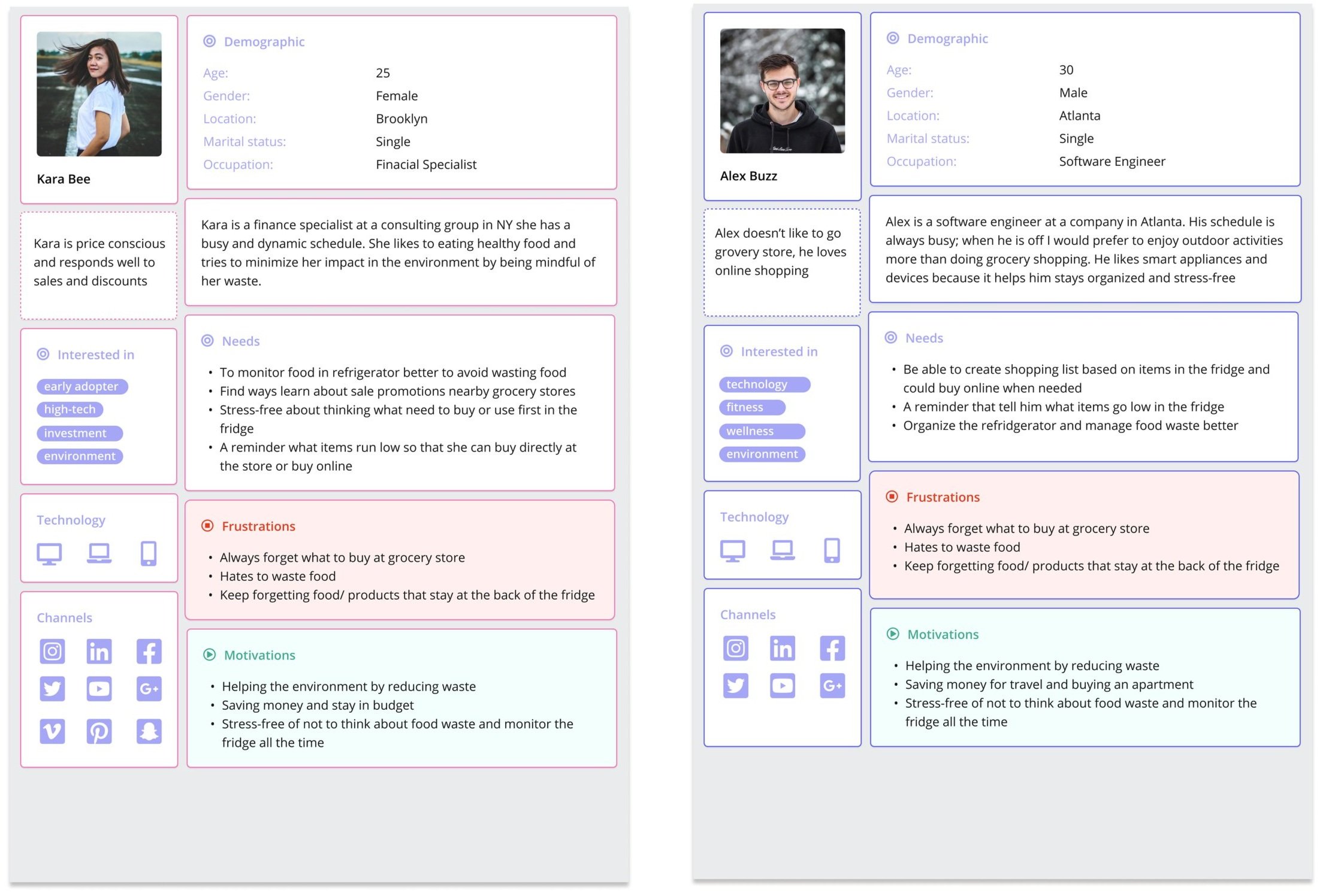
Two distinct user patterns emerged from research, representing different approaches to food management and technology adoption.
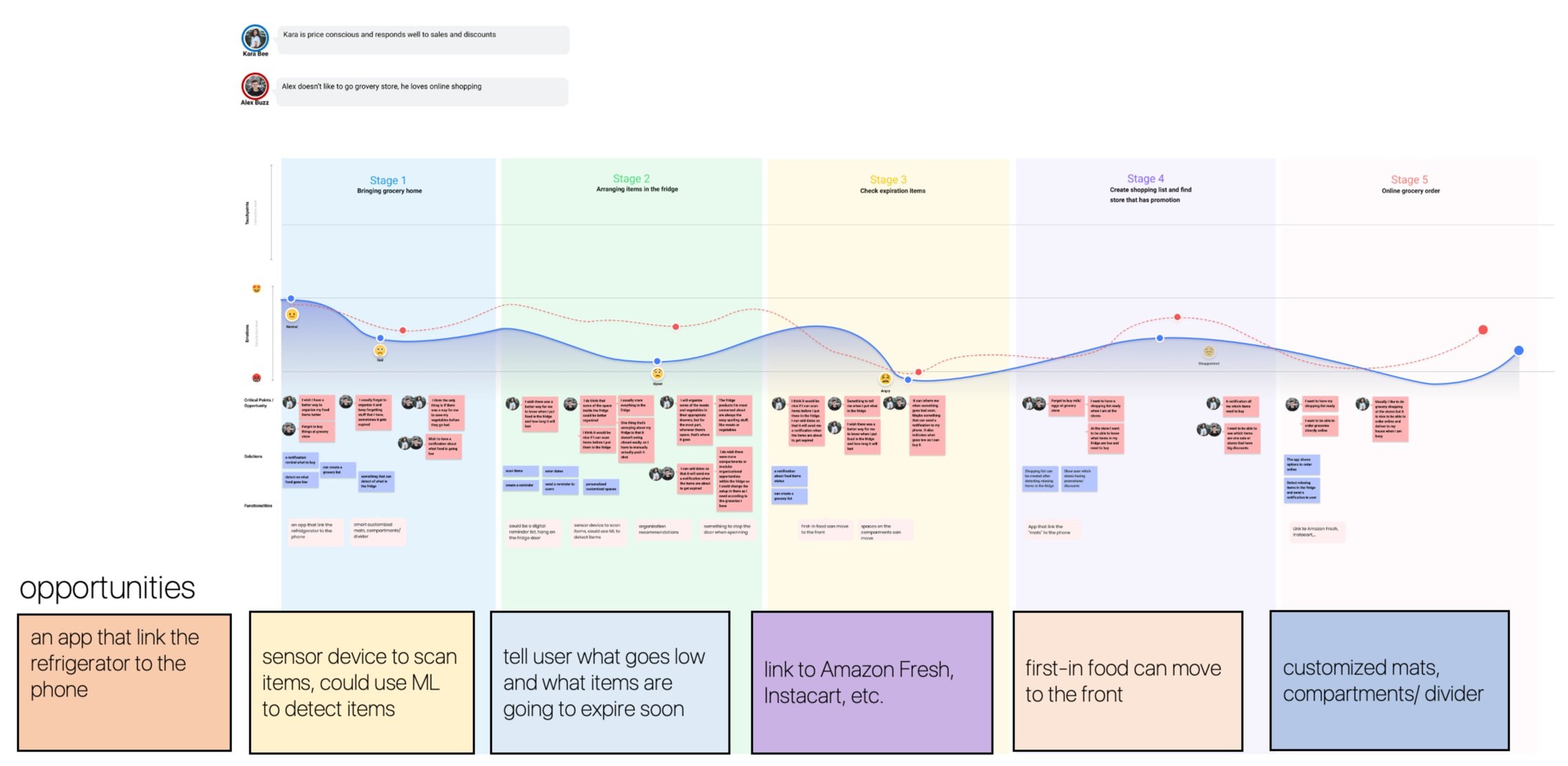
The user journey spans five critical stages: purchasing groceries, organizing items in the fridge, checking expiration dates, creating shopping lists, and ordering groceries online. Each stage presented opportunities for smart intervention without disrupting existing behaviors.
Product Strategy & Value Proposition
“Smart fridge functionality shouldn’t require buying a new fridge. SmartMat retrofits traditional refrigerators with intelligent features, enabling organized food management and waste reduction at a cost-effective price point.”
This approach validates that innovation doesn’t always mean starting from scratch—sometimes the best product strategy involves enhancing what users already own.
Design Process & Ideation
Concept Development
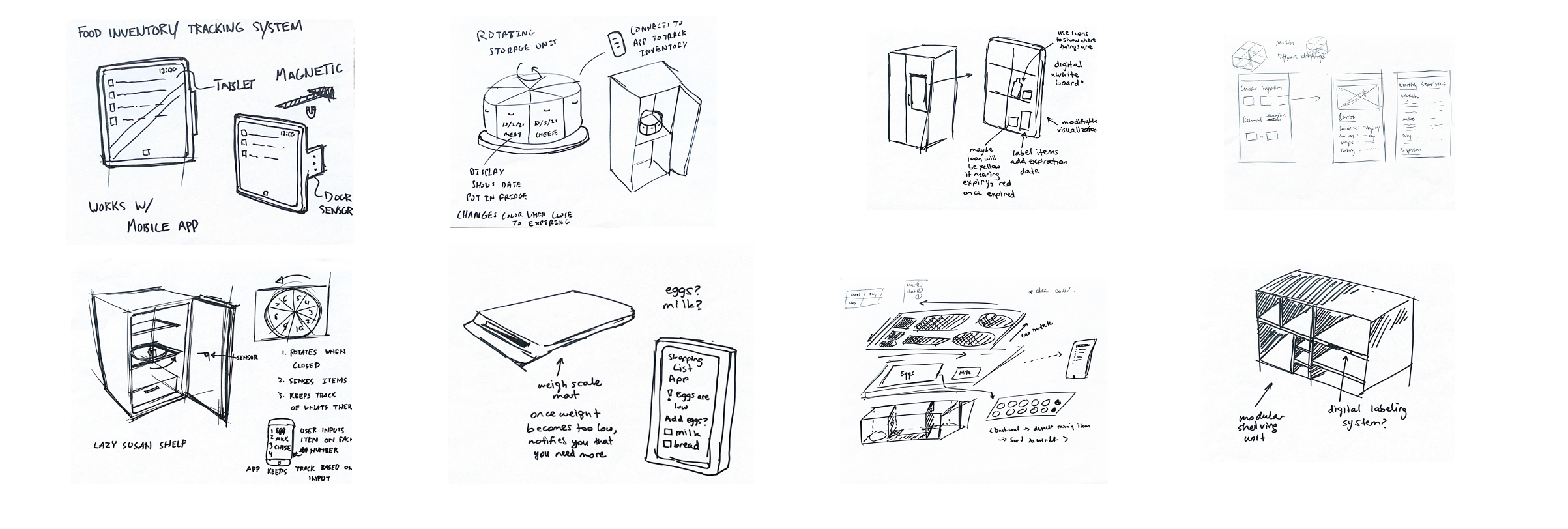
Initial brainstorming explored various form factors and integration approaches, focusing on how to add smart functionality without modifying the refrigerator structure.
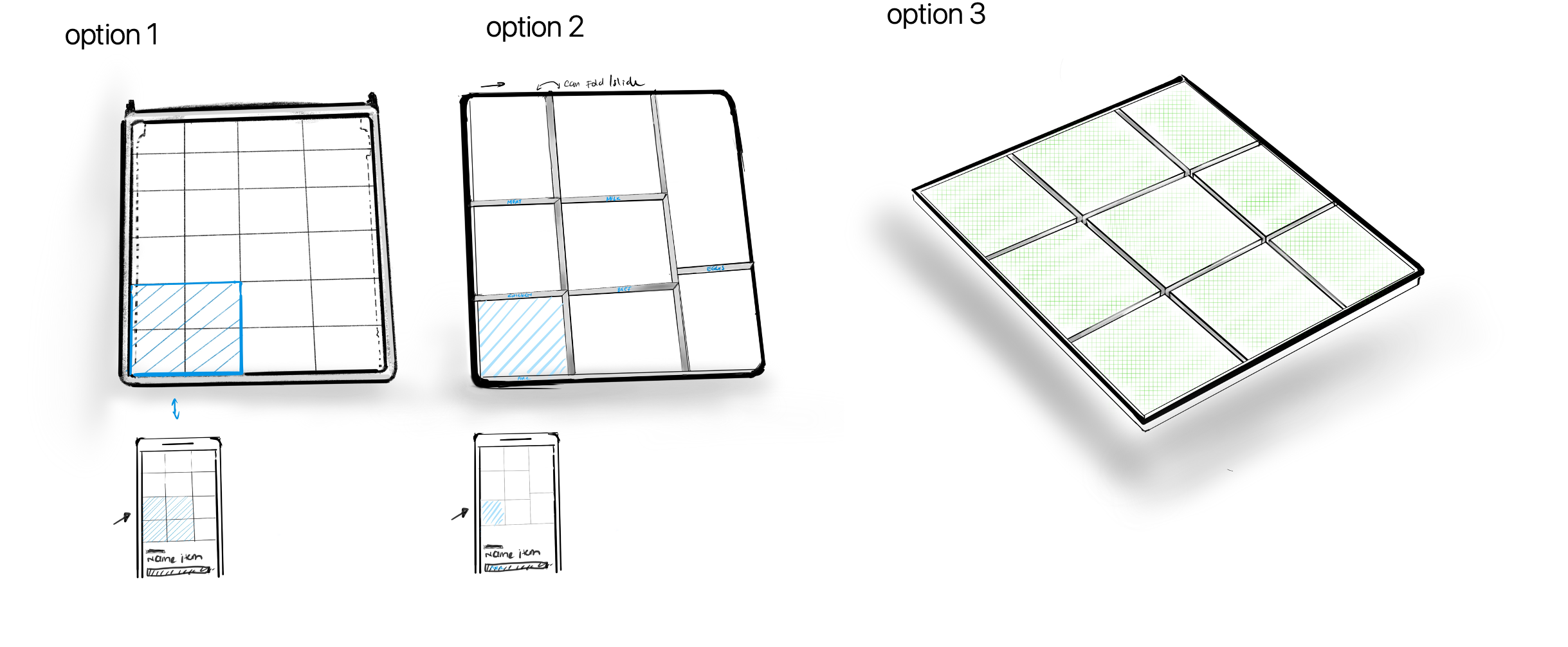
Early sketches investigated square-shaped shelf configurations that could accommodate sensing technology while maintaining easy cleaning and food access.
Design Evolution
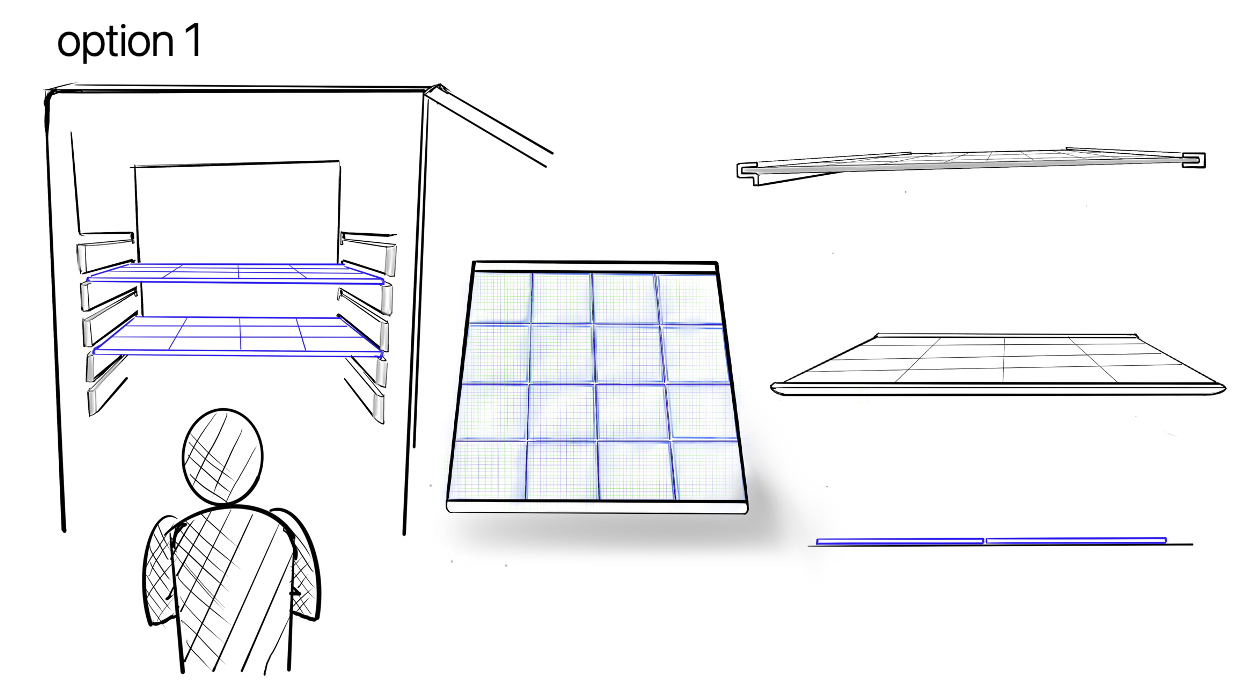
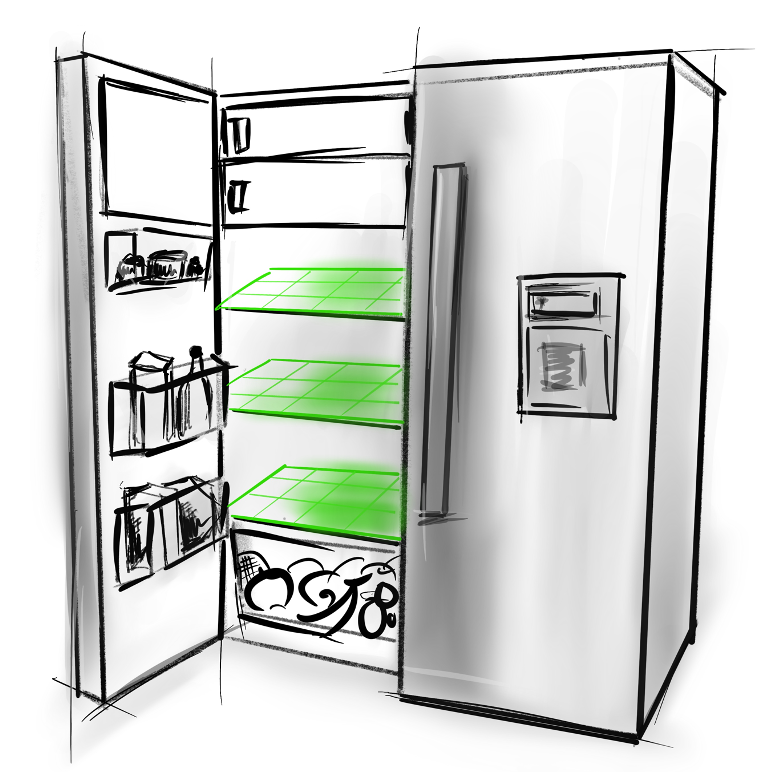
The design process involved exploring multiple configuration options, evaluating how sensors could be integrated into shelf systems without compromising usability.
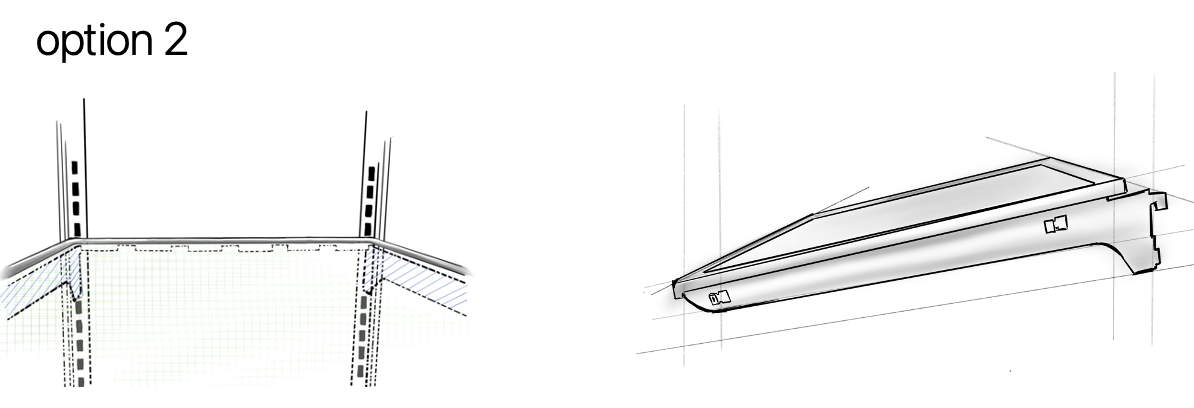
Final Product Design
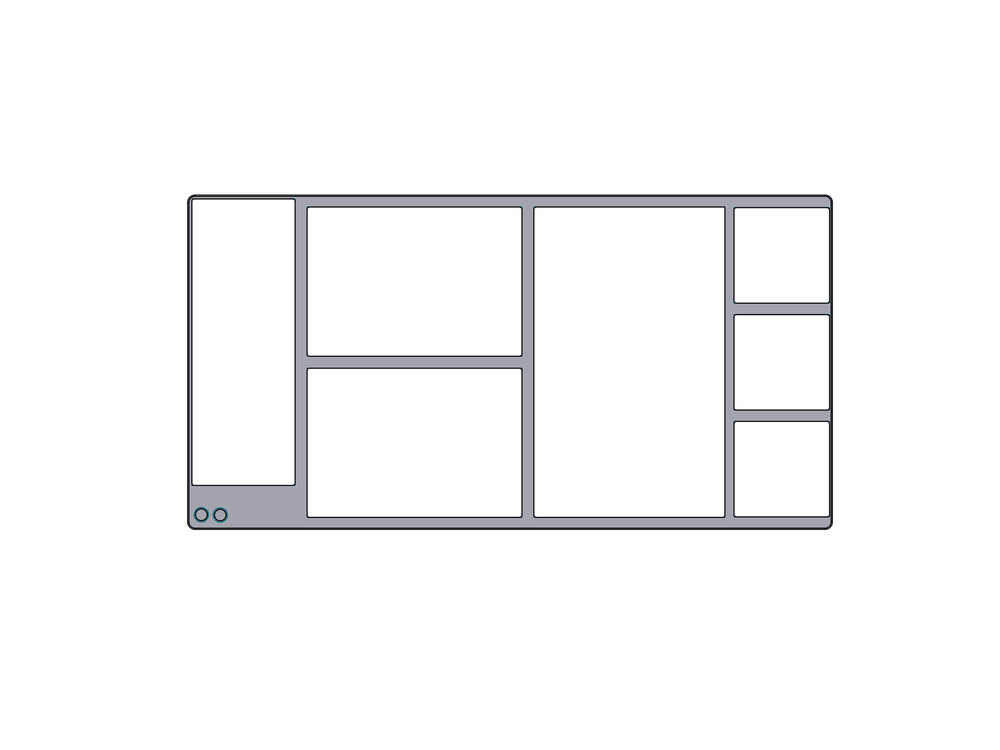
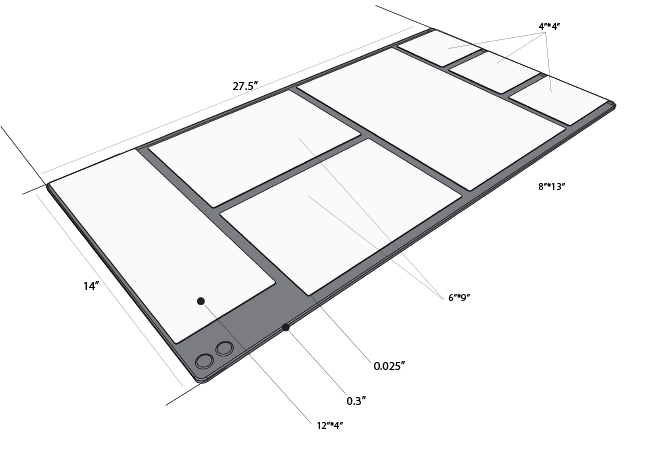
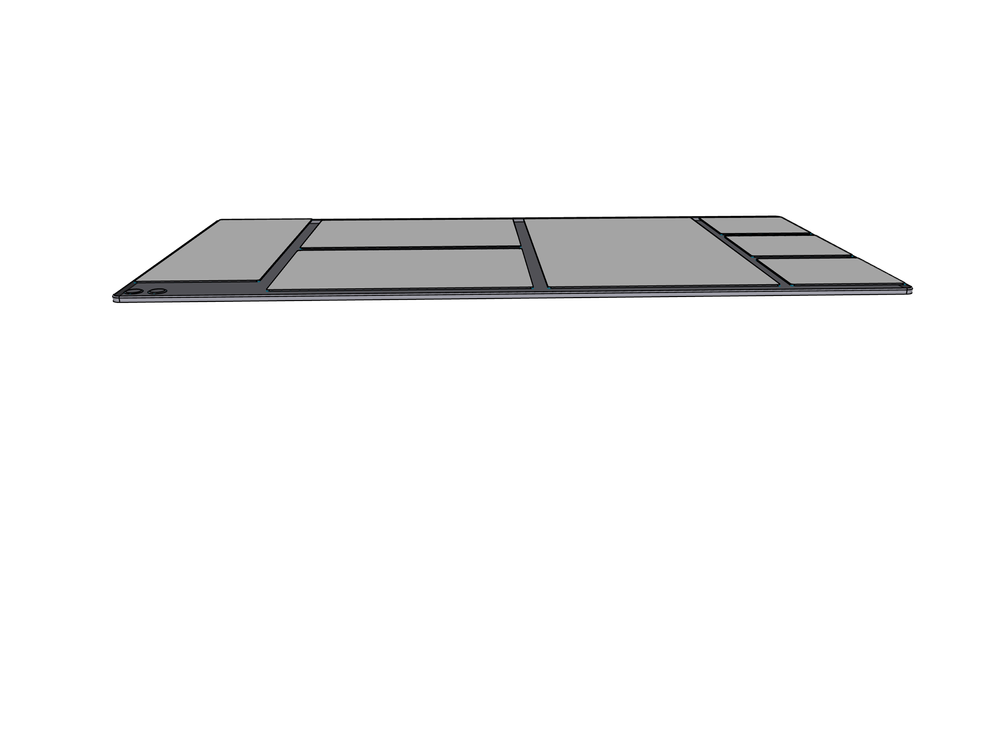
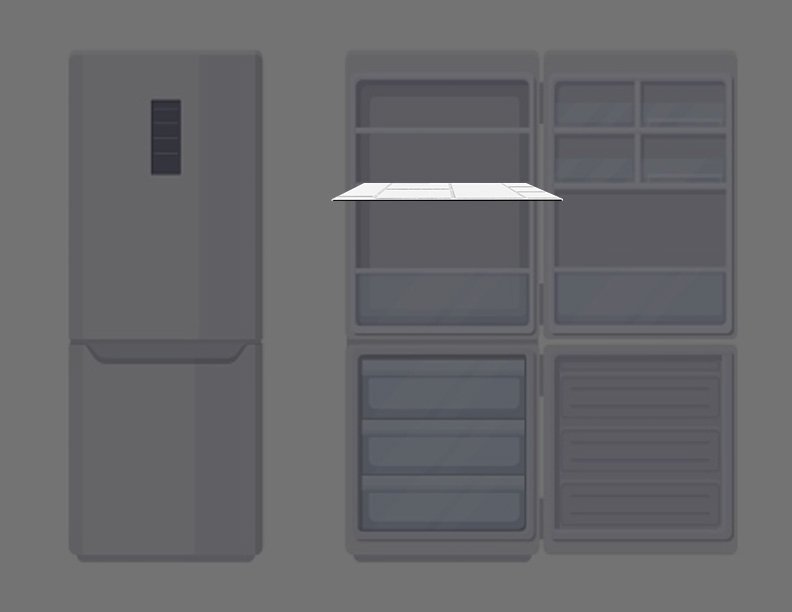
The final design integrates seamlessly with existing refrigerator shelving while housing weight sensors and connectivity components.
Product Renderings
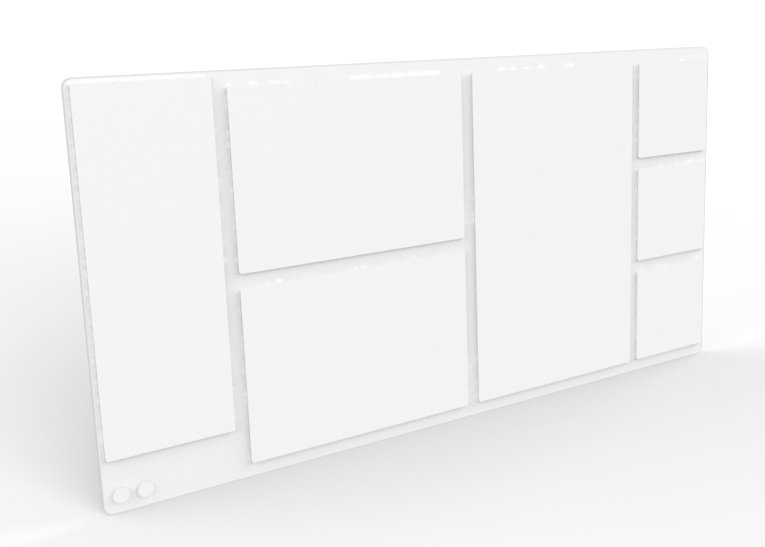
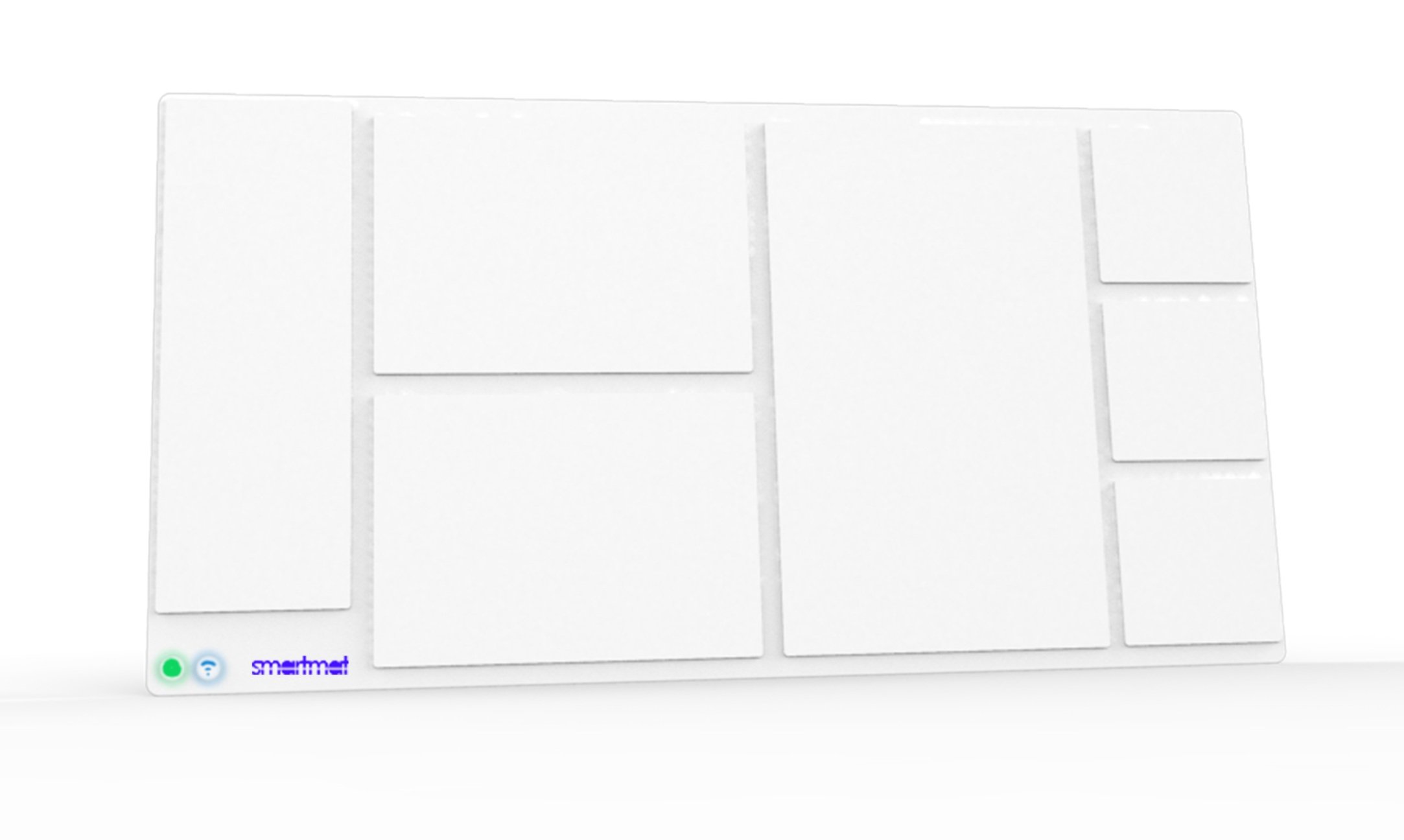

Digital Experience Design
Mobile App Strategy
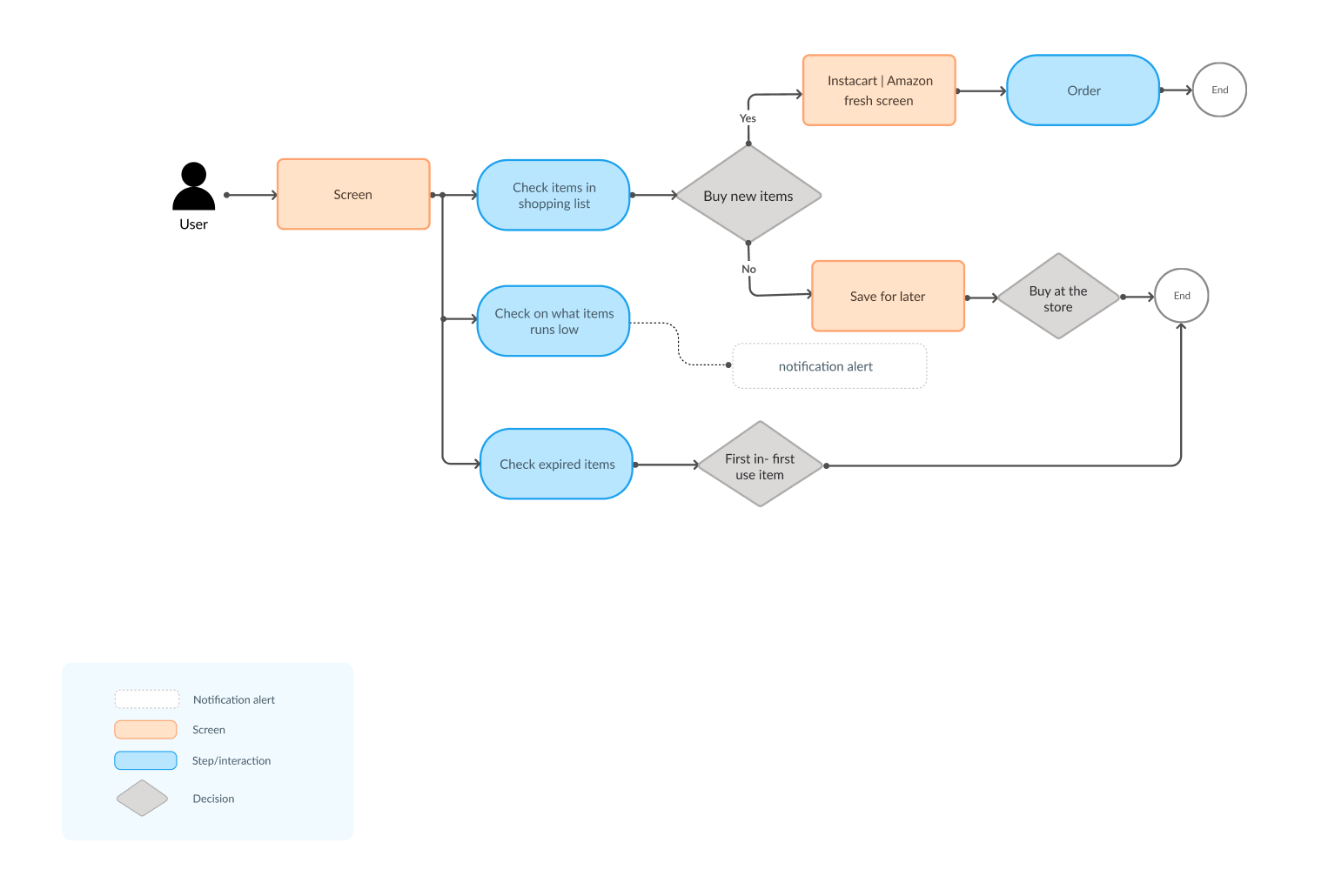
The companion app provides the intelligent layer, connecting physical sensing data with user behavior patterns to deliver actionable insights.
User Experience Design
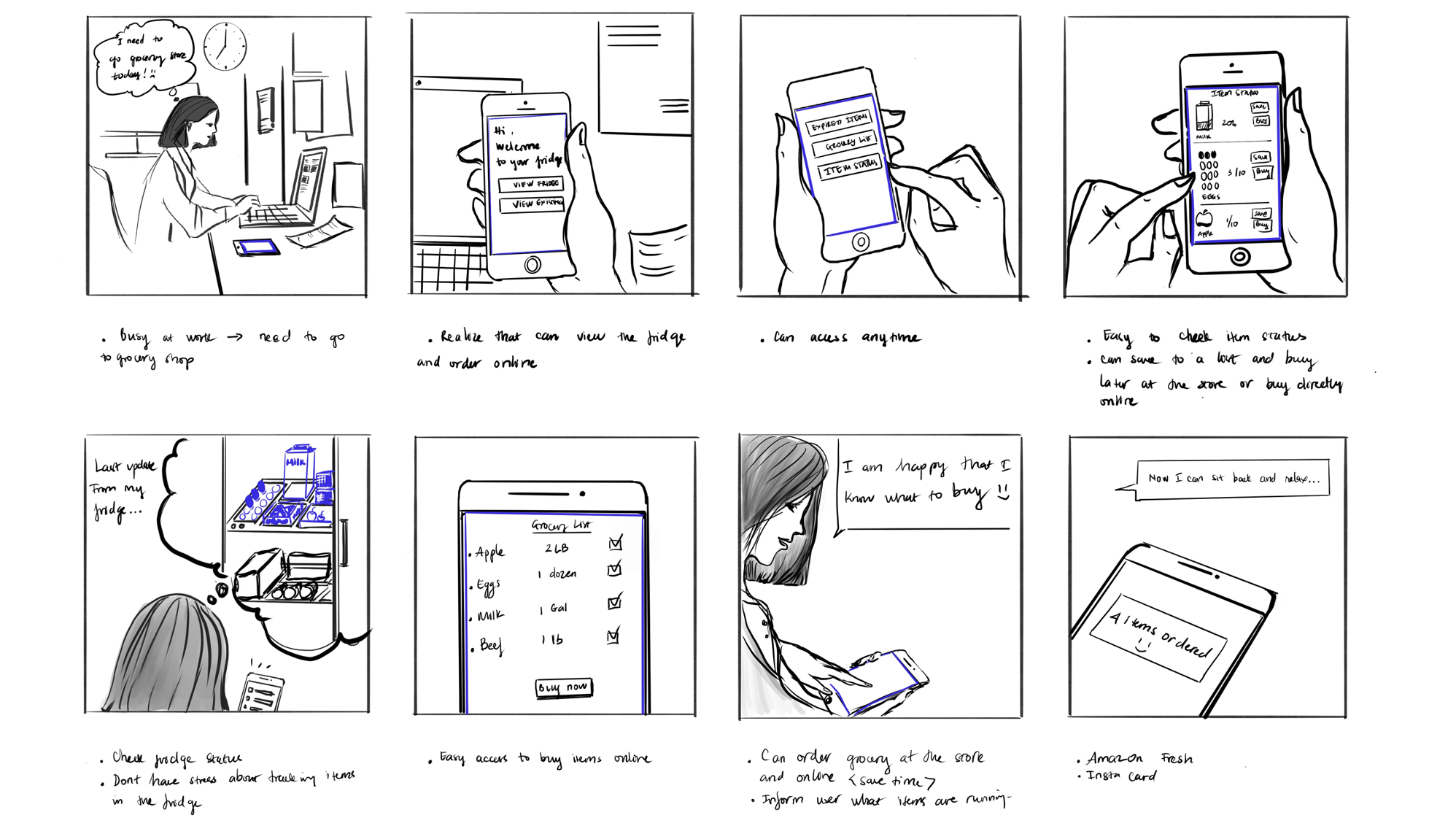
Storyboarding helped visualize how users would interact with both the physical product and digital interface throughout their daily routines.
Visual Design Direction
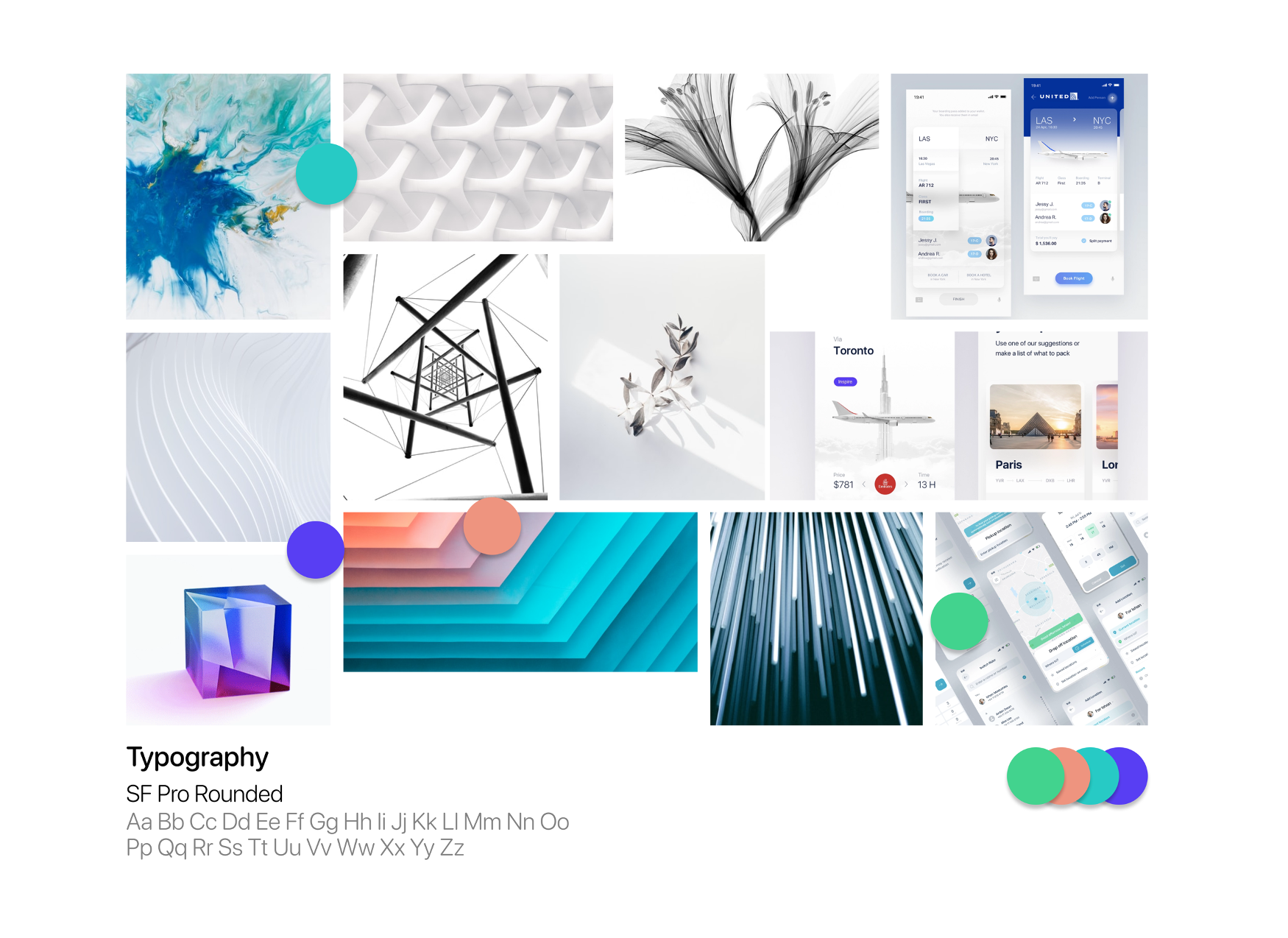
The design aesthetic balances friendliness with intelligence—approachable enough for daily use while conveying technological sophistication.
App Design Process
Wireframe Development:
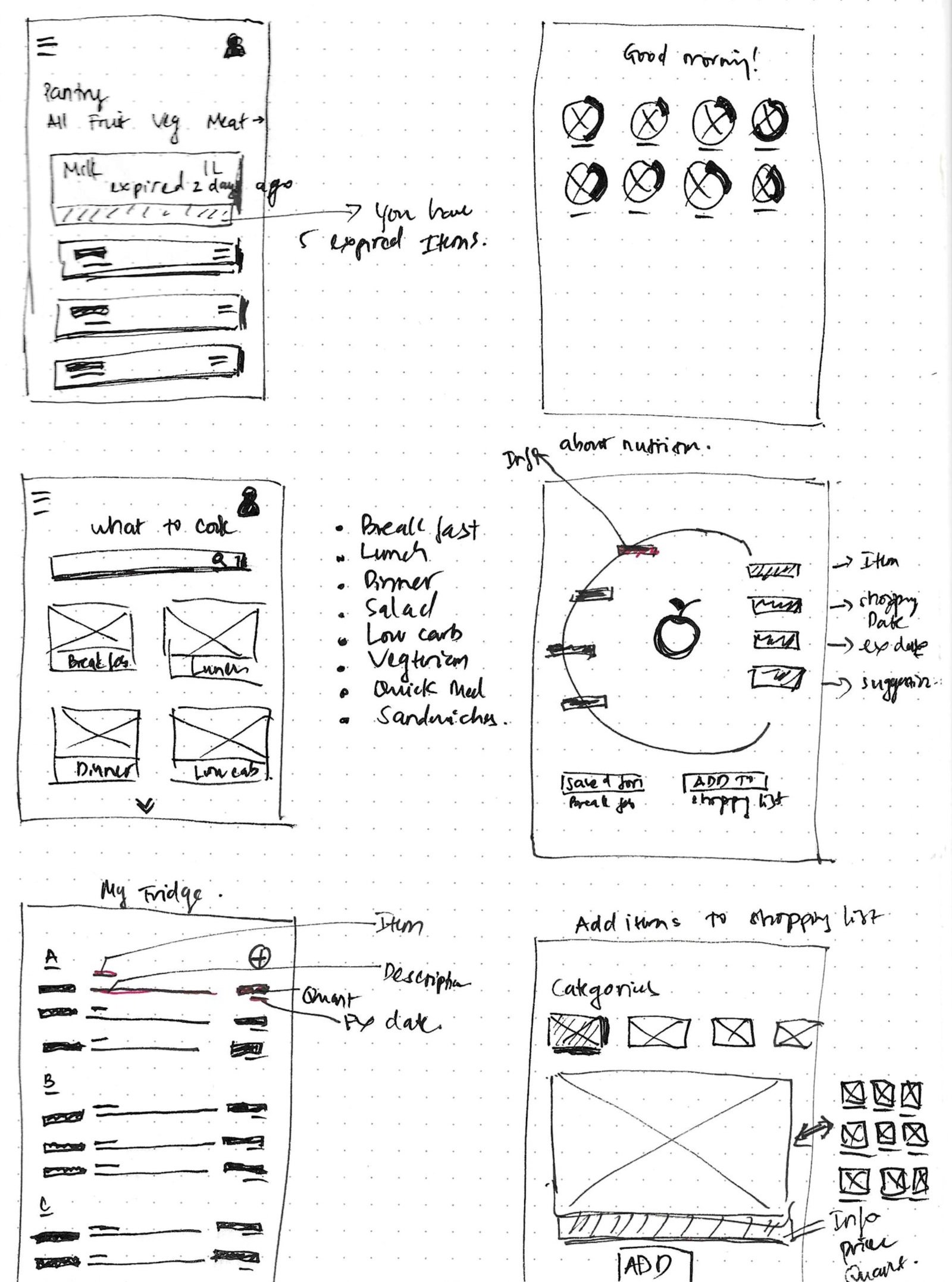
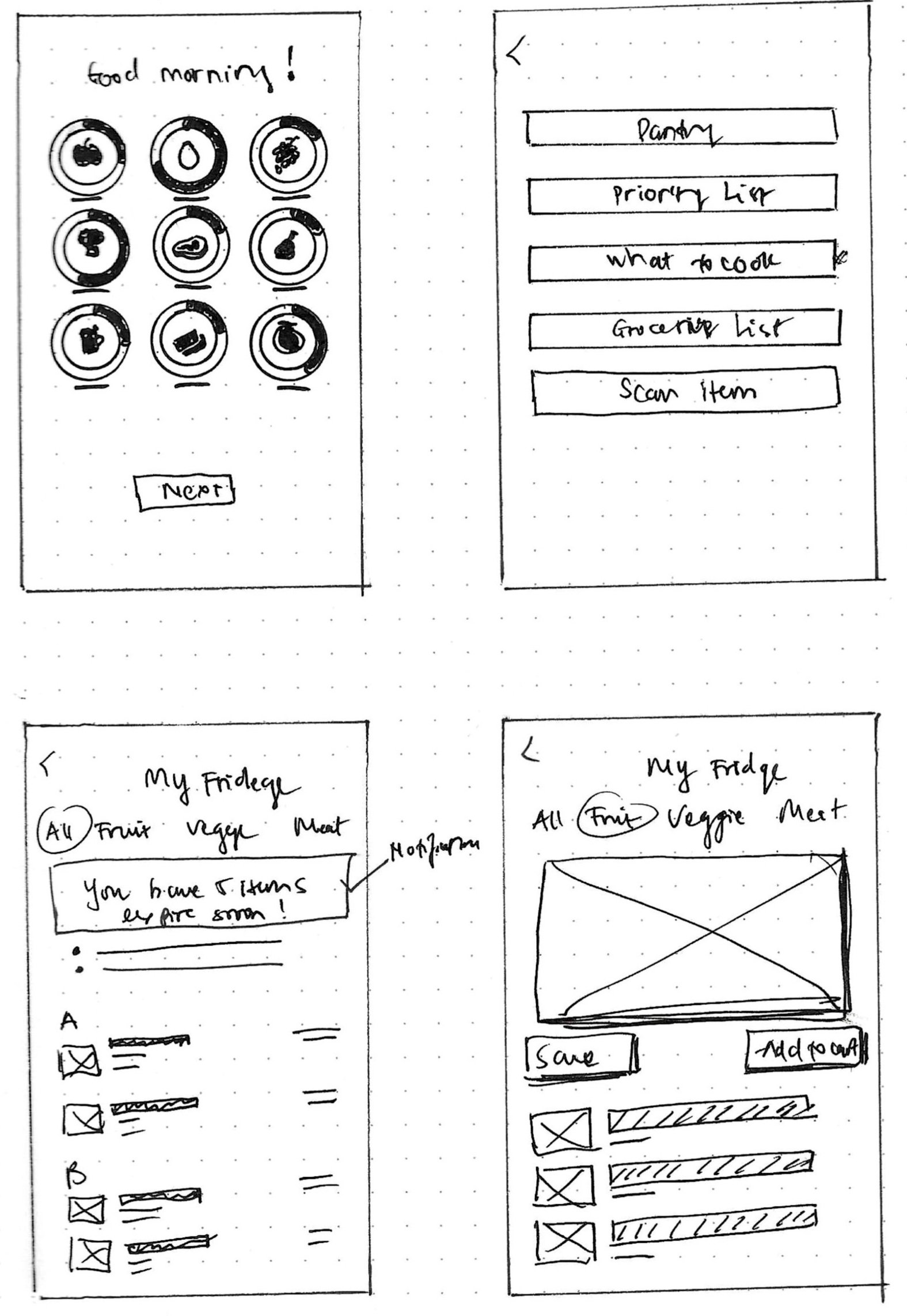
Initial sketches focused on creating an intuitive interface that makes fridge status immediately visible while providing easy access to detailed item information.
Low-Fidelity Prototyping:
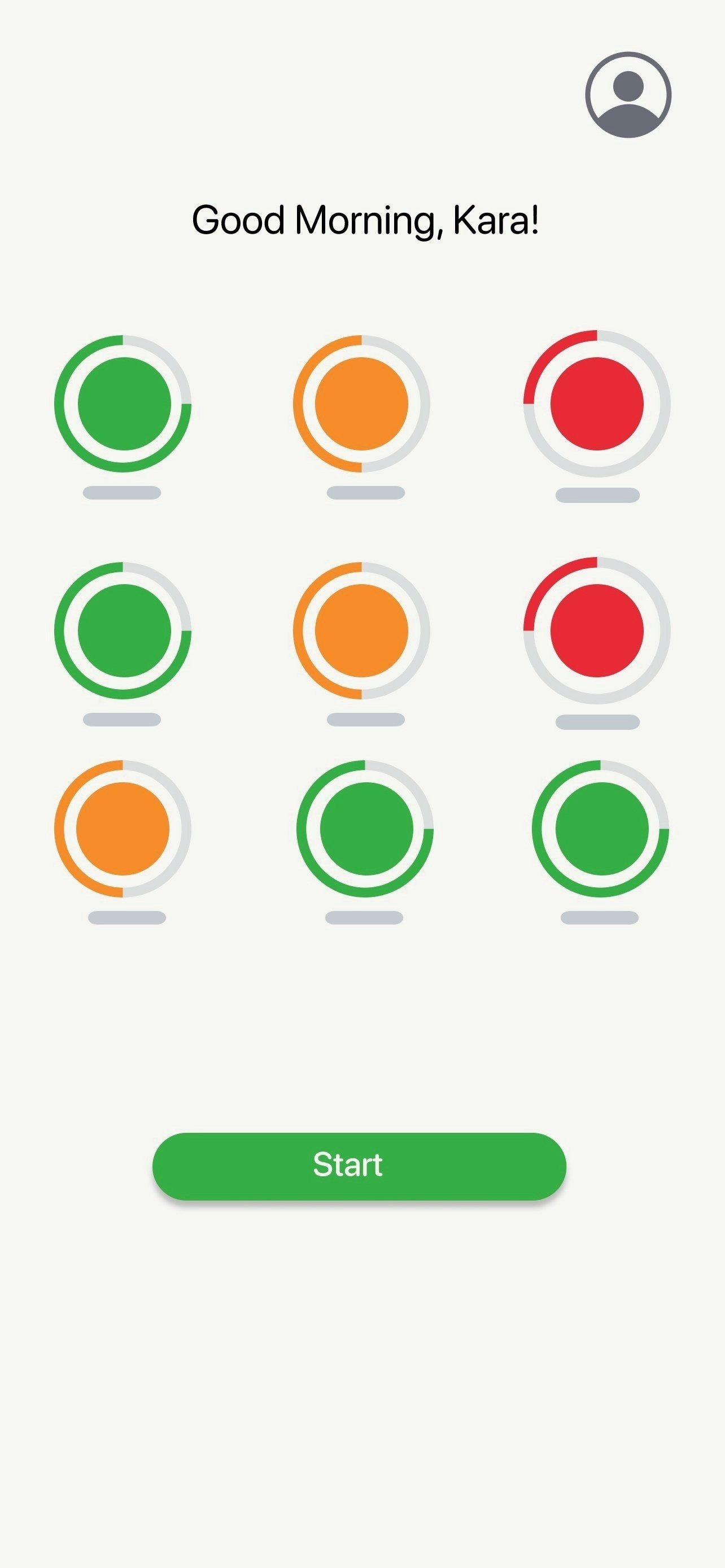 Entry point establishes brand connection
Entry point establishes brand connection
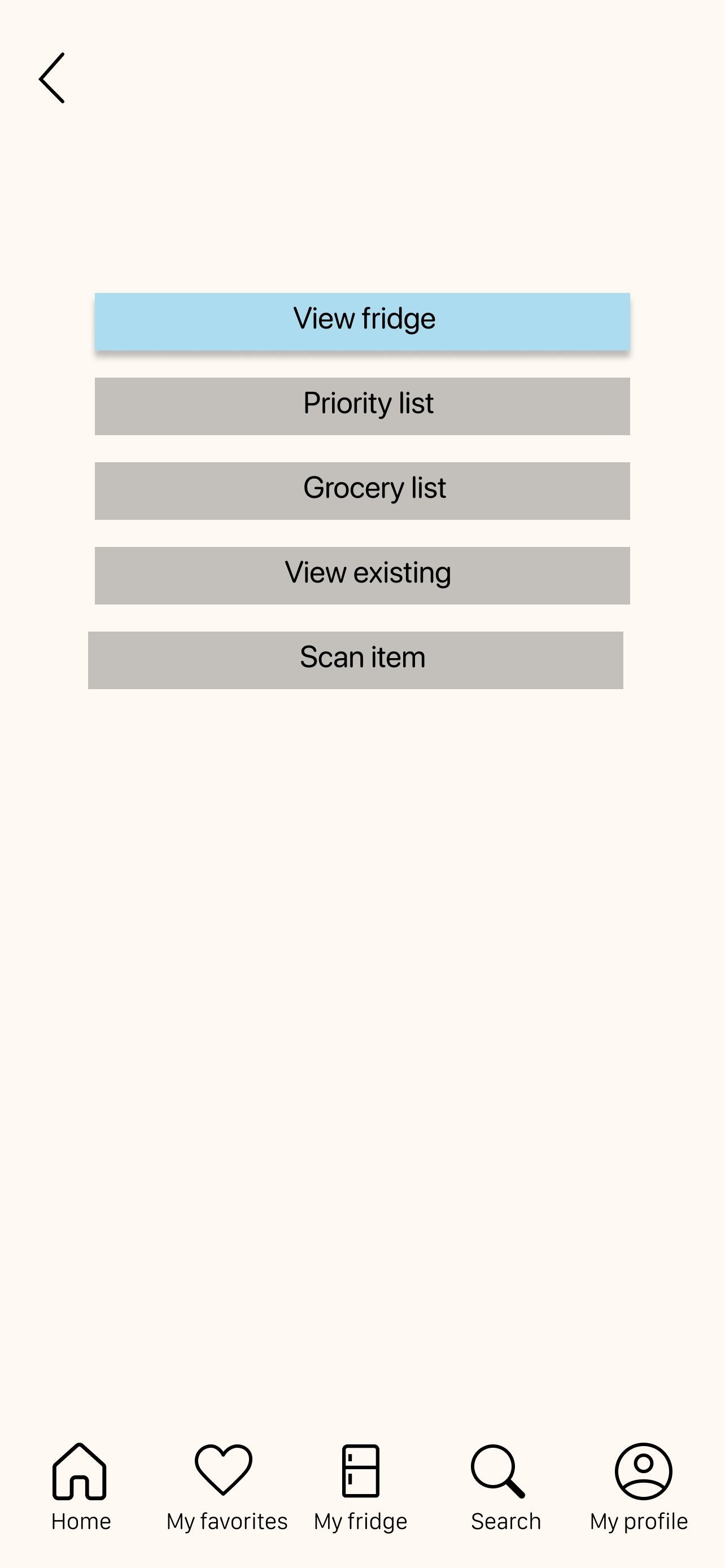 Dashboard provides immediate status overview
Dashboard provides immediate status overview
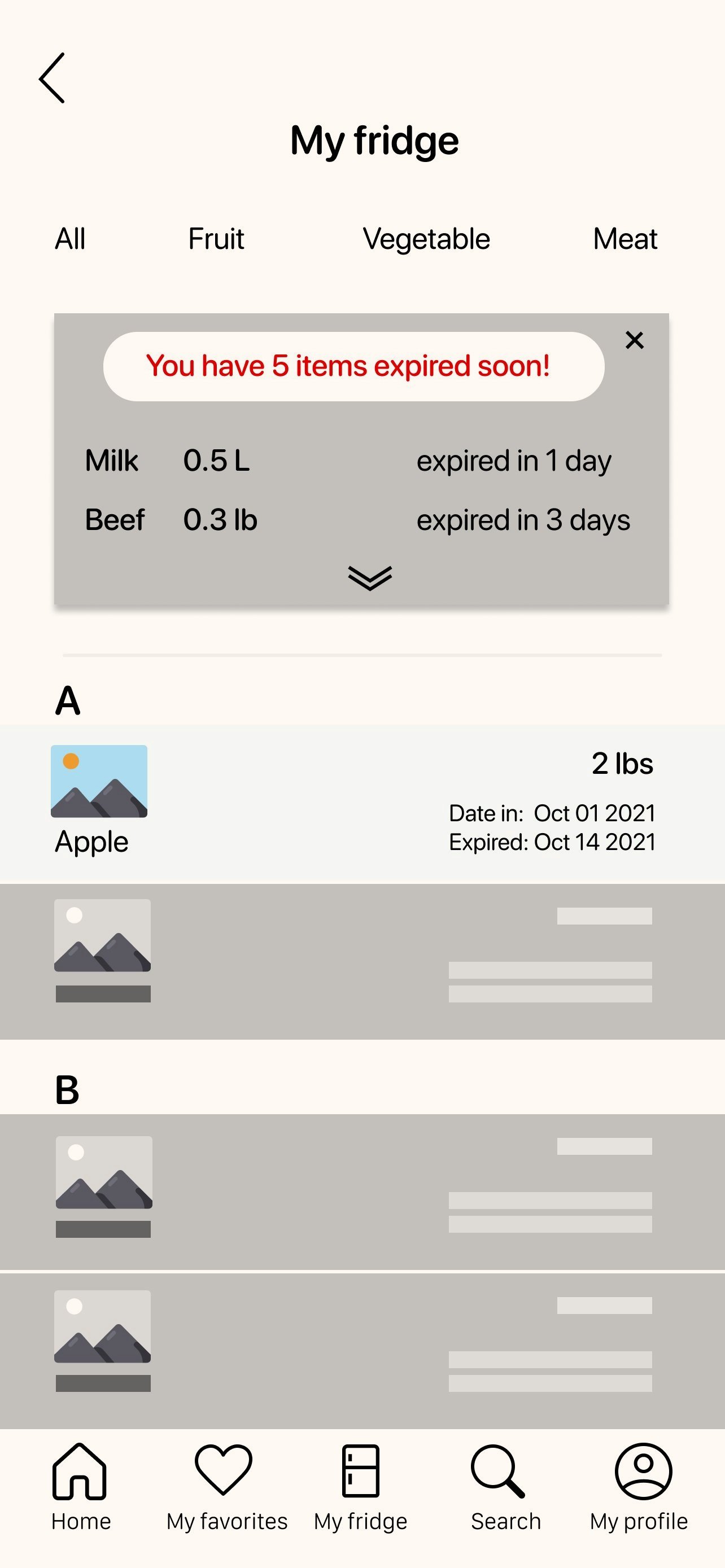 Fridge view mirrors physical organization
Fridge view mirrors physical organization
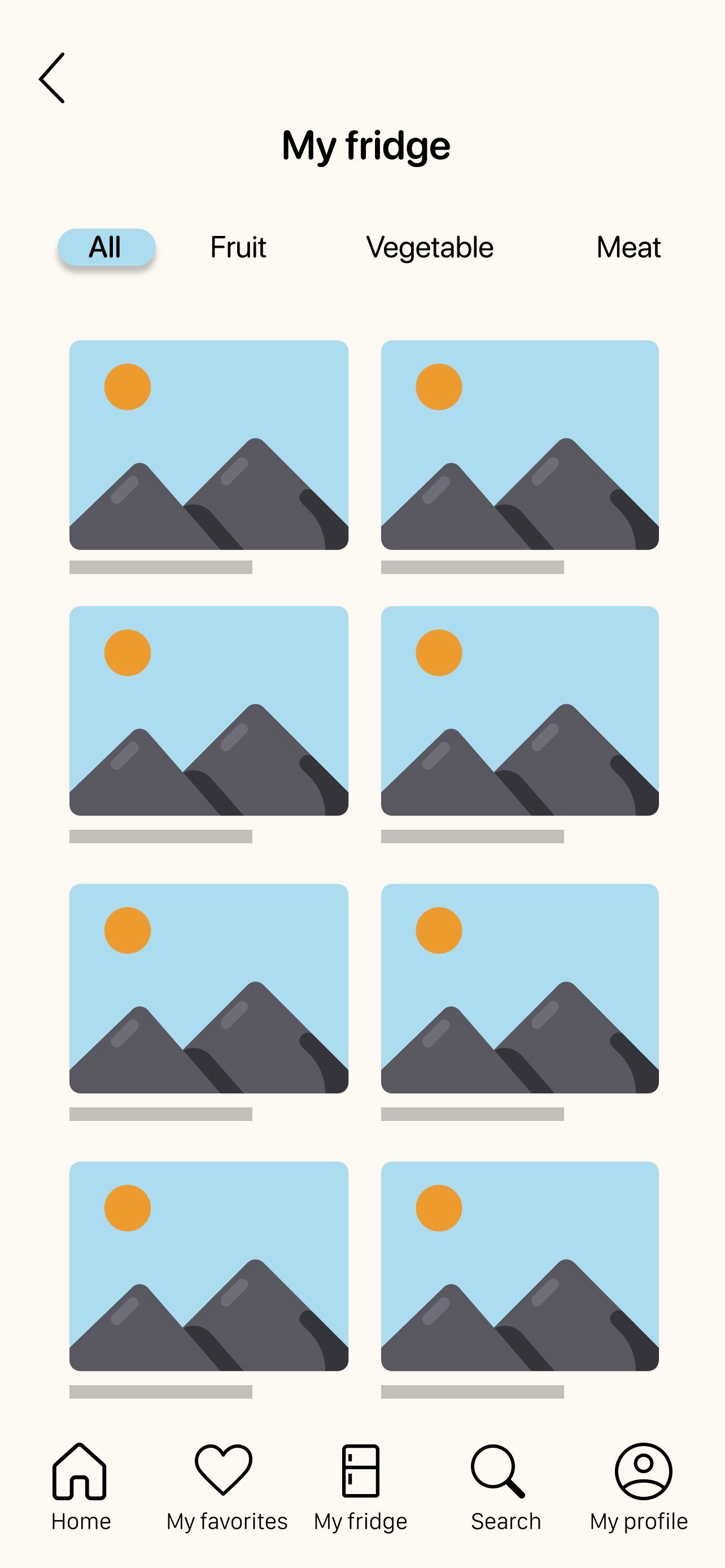 Comprehensive inventory management
Comprehensive inventory management
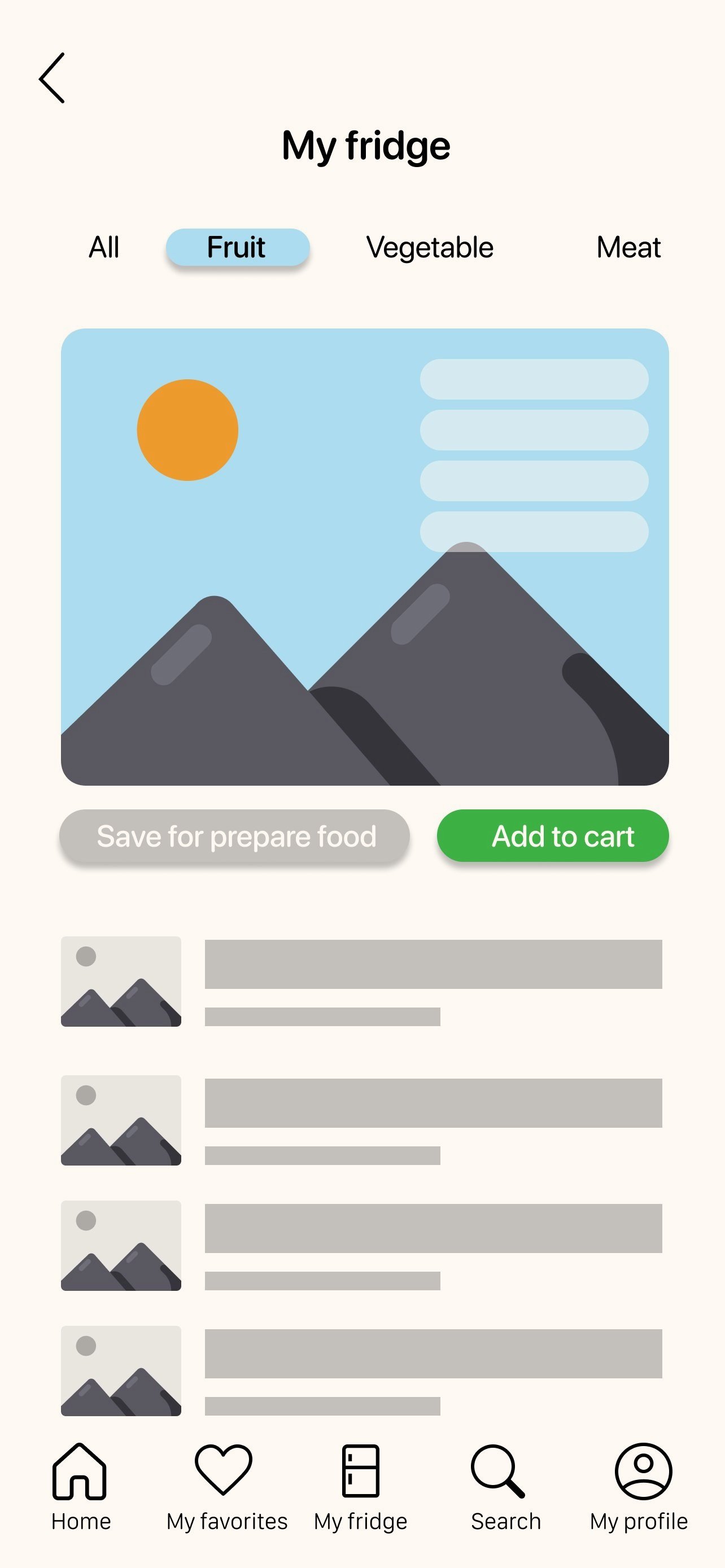 Category-based organization
Category-based organization
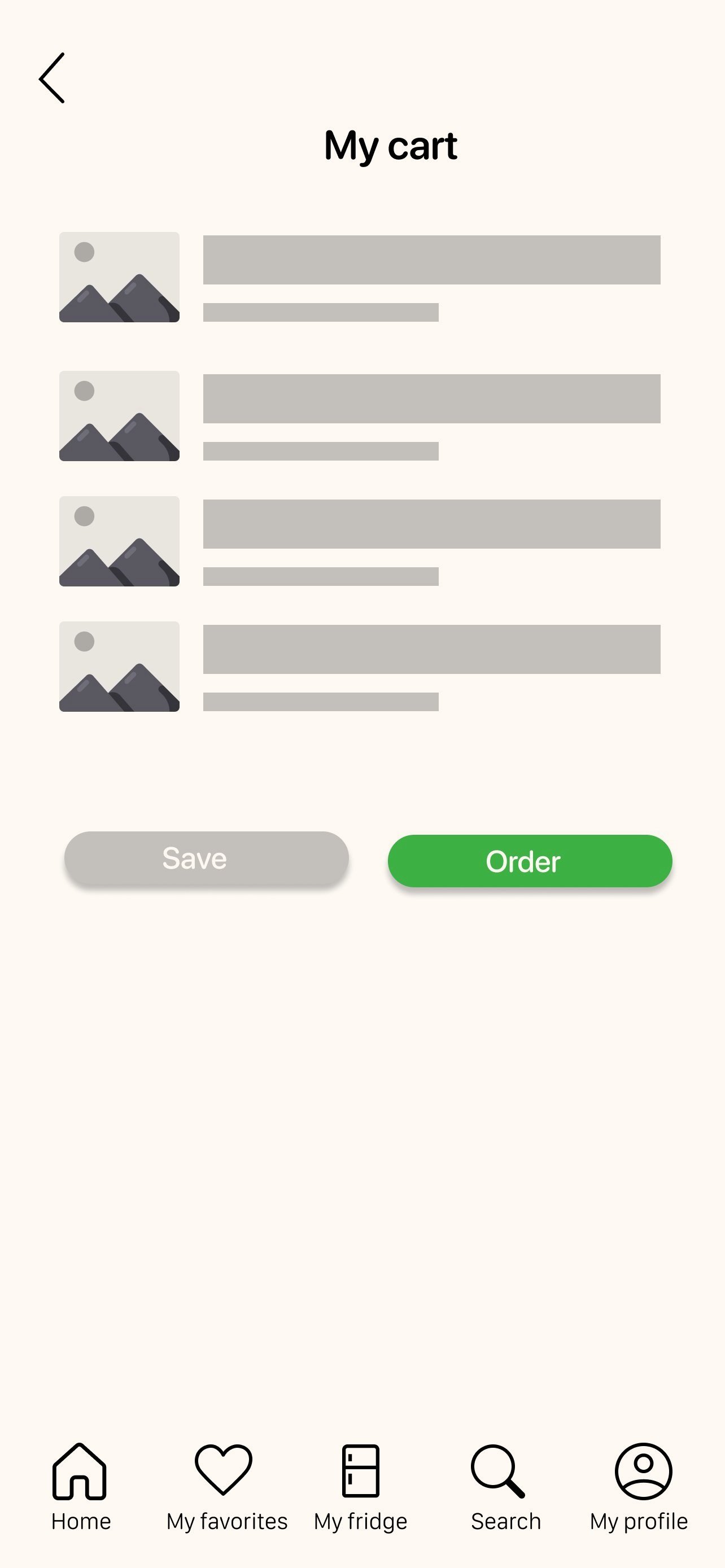 Seamless shopping integration
Seamless shopping integration
Final App Design
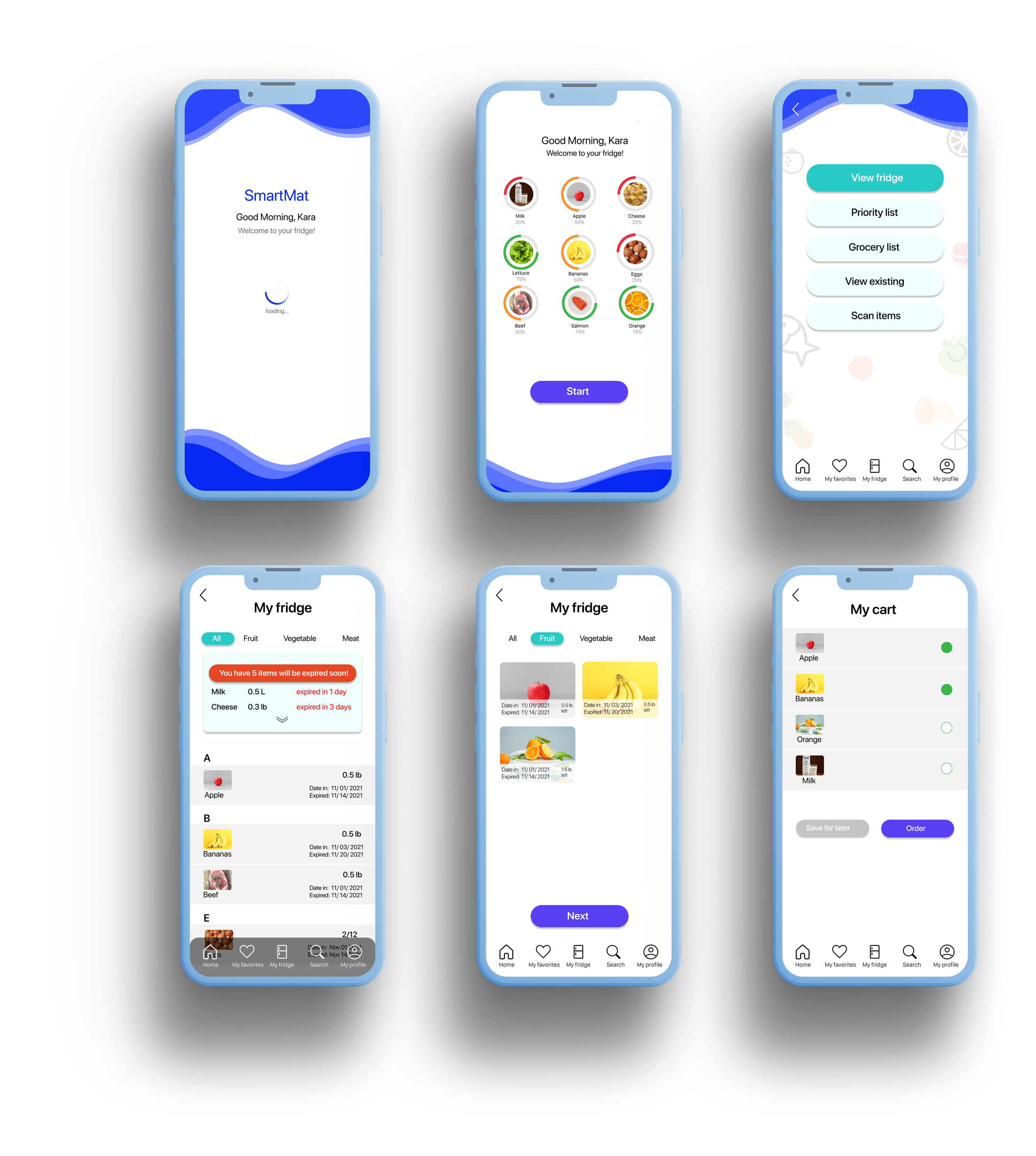
Product Impact & Learning
Validated Design Approach
User feedback confirmed the product concept’s viability, with all interviewees expressing purchase intent. This validation supported the retrofit strategy over creating entirely new appliances.
Key Design Innovation
SmartMat demonstrates how thoughtful product design can democratize technology access. Rather than assuming users need the most advanced solution, this project identified the optimal balance between functionality and affordability.
Strategic Learning
This project reinforced the importance of challenging initial assumptions through user research. The pivot from designing a smart fridge to retrofitting existing ones emerged directly from understanding user priorities and constraints.
Next Steps: Future development would focus on 3D modeling refinement and comprehensive usability testing to validate app functionality and ensure optimal user experience across all interaction points.
This project exemplifies how product design thinking can identify market opportunities by questioning existing paradigms and prioritizing user needs over technological possibilities.